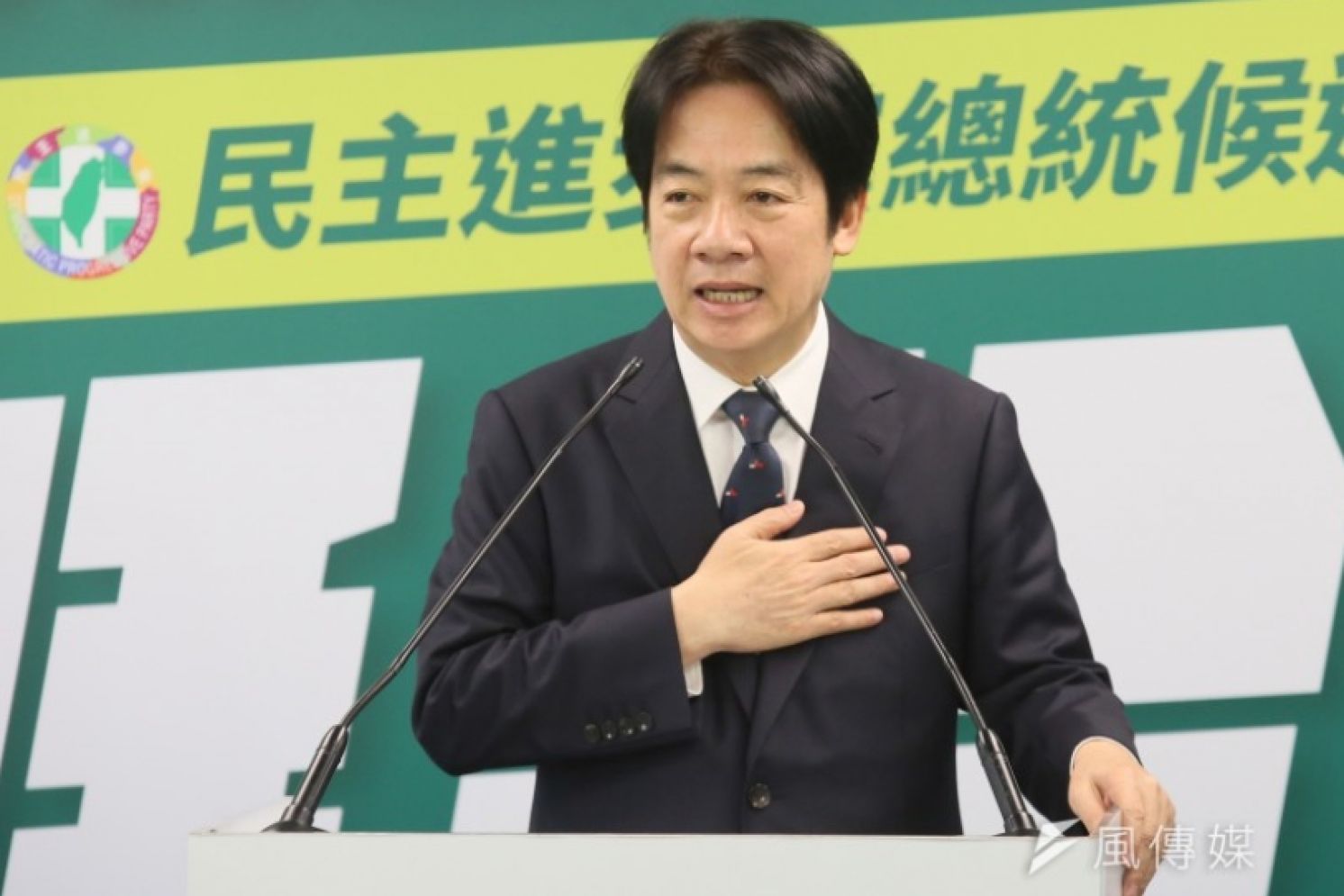
Lai's Strategy May Trigger a New Crisis in the Taiwan Strait
China Times Editorial, April 12, 2023
The Democratic Progressive Party (DPP) officially announced that R.O.C. Vice President Lai Ching-te, who concurrently serves as DPP chairman, will represent the party in the presidential election. His impassioned speech after the party's central executive committee meeting is equivalent to the DPP's campaign platform for 2024. While Lai's stance on cross-strait relations is as expected, his divisive and self-denying approach may not only fail to convince the people of Taiwan, but also trigger a new crisis in the Taiwan Strait.
It is evident that Mr. Lai's cross-strait narrative aims to cater to the opinions of the entire political spectrum of Taiwan's society in order to consolidate social consensus. To appeal to the pro-independence base, he reiterated that "Taiwan is already a sovereign independent country." To appeal to supporters of President Tsai Ing-wen, with whom he had a strained relationship, he emphasized the continuation of the "Republic of China, Taiwan" and the "not subordinate to each other" discourse. To appeal to swing voters, Lai asserted for the first time that "Taiwan does not have a unification nor independence issue." To appeal to voters who typically align with the Kuomintang (KMT), he stated at length a rare assertion that China and Taiwan need to communicate, maintain peace, and prosper together.
Mr. Lai’s perspective is not so much a personal take on cross-strait relations, but rather a mixture of various cross-strait stances across the spectrum in Taiwan, resulting in a narrative that is full of logical contradictions. For instance, Lai has cast the 2024 presidential election as a choice between “democracy and authoritarianism,” which is a huge irony in light of his advocacy for “cross-strait exchanges and cooperation.” If mainland China is a synonym for authoritarianism for the DPP, then why should Taiwan communicate and cooperate with the mainland?
It is interesting that in Mr. Lai’s recent speech, he called for improving mutual understanding, comprehension, forgiveness, and reconciliation between both sides of the Taiwan Strait. It's possible to interpret his “four understandings” as a response to the “four proposals" put forward by mainland China, which calls for peace, cooperation, development, and communication. While this could be seen as a positive gesture towards Beijing from the perspective of the DPP, it stands in stark contrast to Lai's explicit remarks that "Taiwan is already an independent sovereign state" and "Taiwan is not a part of China," which clearly violate the Constitution of the Republic of China. Considering this, one may question the sincerity of Lai’s “four understandings.”
On the same day of Mr. Lai’s speech, foreign media reported that mainland China is planning to establish a no-fly zone in northern Taiwan. At the same time, the mainland’s Ministry of Commerce has initiated an investigation into trade barriers involving 2,455 products in Taiwan. The investigation is expected to end on the day before the 2024 presidential election. Although the mainland Chinese government and scholars have not yet offered any official interpretation, the two actions have given rise to clear speculations. The establishment of a no-fly zone may suggest the possibility of military action against Taiwan. In addition, the investigation into trade barriers could result in a complete cessation of cross-strait economic and trade relations, leaving Taiwan facing a potential economic downturn in the future.
It remains to be seen whether mainland China's latest intimidating moves will once again push public opinion in Taiwan in the opposite direction. However, the interpretations and speculations of the reason behind the establishment of a no-fly zone and the possibility of an interruption of trade are still subjective. The remarks made by Spokeswoman Zhu Fenglian of the Taiwan Affairs Office of the mainland’s State Council during the press conference indicate that the mainland Chinese authorities still retain a certain degree of flexibility and room for maneuvering when dealing with the DPP.
Zhu’s exact words were: "We hope that the DPP authorities will follow public opinion, abandon the stance of Taiwan independence, lift various restrictions on cross-strait exchanges as soon as possible, restore normal cross-strait exchanges and cooperation, and enhance the well-being of compatriots on both sides of the Taiwan Strait." This statement does not explicitly demand that the DPP administration accept the "One China” principle" or the "1992 Consensus," but only mentions the need to "abandon the stance of Taiwan independence." It appears that the Chinese side's attitude towards the DPP administration is that as long as the DPP “abandons the notion of Taiwan independence” in a suitable way, cross-strait exchanges can be restored to normal.
From the military exercises carried out by Beijing after President Tsai’s meeting with Speaker Kevin McCarthy of the U.S. House of Representatives, it would seem that mainland China’s policy of peaceful reunification remains unchanged. Former President Ma Ying-jeou's historic visit to China further proves that if Taiwan returns to the framework of the R.O.C. Constitution and acknowledges the de jure reality that the Taiwan area and mainland area both belong to Republic of China, then Taiwan can have equal and dignified exchanges with the mainland. Furthermore, cross-strait relations can then be freed from the danger of military conflict.
Mr. Lai should possess the competency, character, and political influence to realign the DPP's cross-strait policy. If he can steer the DPP in passing a resolution that incorporates “managing cross-strait affairs in accordance with the constitutional system of the Republic of China and the laws governing cross-strait relations" into the party charter, it may open a new chapter for sustainable peace across the Taiwan Strait.
Regrettably, Mr. Lai’s campaign discourse is characterized by a haughty and strident criticism of Mr. Ma’s visit to mainland China, denying the cross-strait position established under the framework of the R.O.C. Constitution as well as severing the link between Taiwan, the Republic of China, and China. As a result, the potential for a more severe Taiwan Strait crisis in the 2024 election hinges on the choice of Taiwan’s electorate.
From: https://www.chinatimes.com/opinion/20230412005453-262101